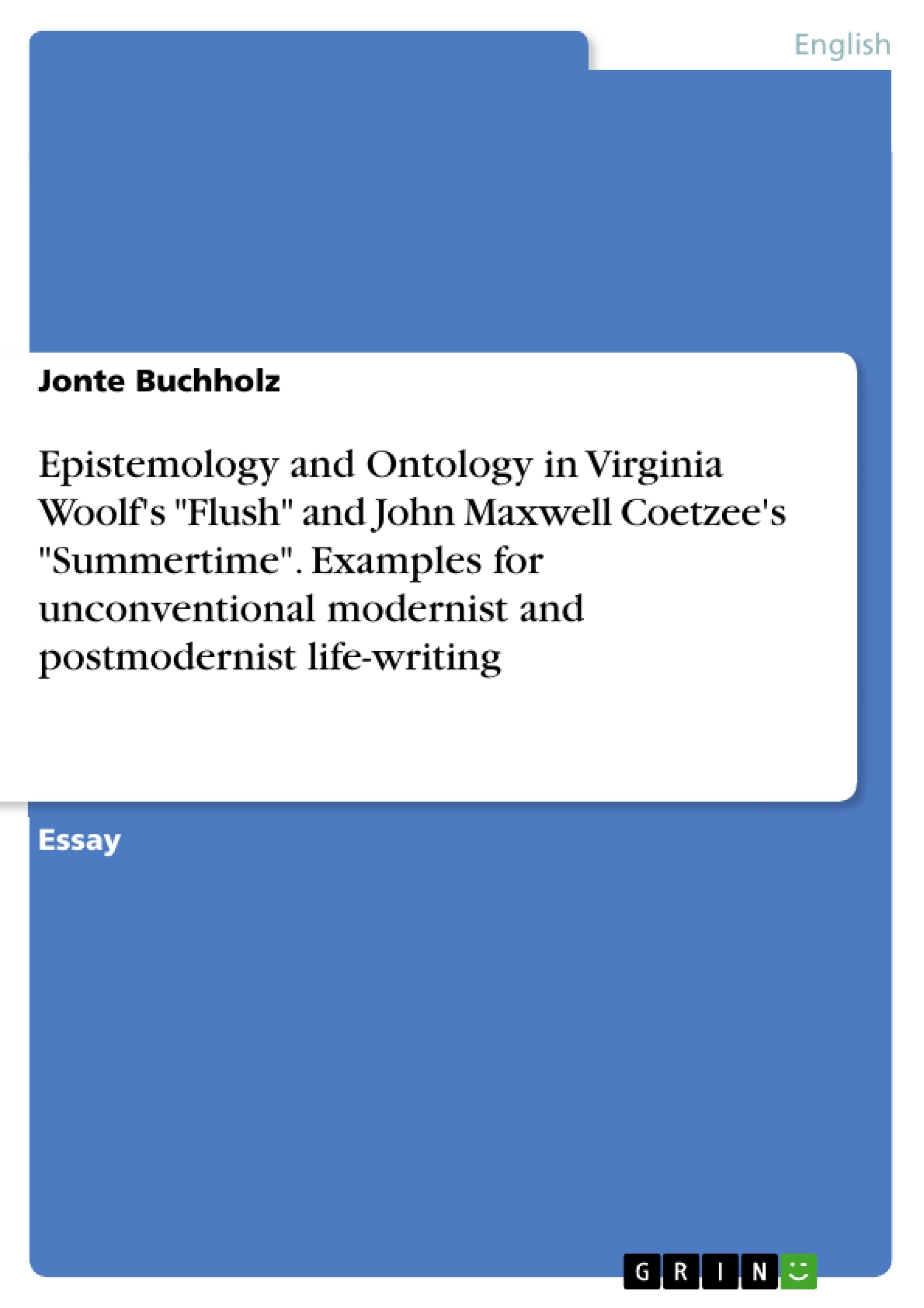This essay aims to explore how the biographical texts “Flush” by Virginia Woolf and “Summertime” by John Maxwell Coetzee respond to (post-)modernist concerns and how the texts transgress previous conceptions and genre boundaries concerning the contradiction of fact and fictionality in life-writing. I will show how Woolf, by depicting the life and perceptions of a dog, playfully comments and criticizes previous conventions of life-writing. Coetzee goes even further and takes the reader on a journey through the process of constructing the written representation of a life.
Thereby reflecting upon the multiple perspectives and inaccuracies the biographical representation of ‘a life’, or, in case of autobiography, ‘the self’, necessarily includes. By exemplary comparing Woolf’s linear ‘mock-biography’ “Flush” with Coetzee’s “highly fragmented self-representation” “Summertime”, the evolution of the genre of life-writing from modernism to postmodernism and the shift from epistemological to ontological concerns will be outlined.
Inhaltsverzeichnis (Table of Contents)
- Scribal abbreviations
- Essay
- Bibliography
Zielsetzung und Themenschwerpunkte (Objectives and Key Themes)
This essay explores how the biographical texts Flush by Virginia Woolf and Summertime by John Maxwell Coetzee respond to (post-) modernist concerns and how the texts transgress previous conceptions and genre boundaries concerning the contradiction of fact and fictionality in life-writing. The essay compares Woolf's linear 'mock-biography' with Coetzee's "highly fragmented self-representation" and outlines the evolution of the genre of life-writing from modernism to postmodernism, exploring the shift from epistemological to ontological concerns.
- The contradiction of fact and fictionality in life-writing
- The limitations of human perception and knowledge in representing another's life
- The role of subjectivity and interpretation in biographical narratives
- The intersection of modernist and postmodernist approaches to life-writing
- The evolution of life-writing from epistemological to ontological concerns
Zusammenfassung der Kapitel (Chapter Summaries)
The essay begins by analyzing Virginia Woolf's Flush, focusing on the fictionalization of a dog's perspective and the limitations of human biography. The text highlights the inadequacy of biographical description and the necessity of interpretation, using the example of Elizabeth Barrett Browning's life and her pet, Flush, as a case study. The essay further explores how Woolf's text criticizes modern society's detachment from nature, sexuality, luxury, and class issues.
The essay then shifts to John Maxwell Coetzee's Summertime, analyzing its exploration of the textual amendment of reality and the construction of a 'world' of different distinguished narrations linked by the subject: John Coetzee. The essay examines how Coetzee challenges the relationship between the character, John, and the author by introducing the metanarrative of the biographer, Mr. Vincent, who conducts interviews and compiles notebook entries of the deceased author.
Schlüsselwörter (Keywords)
This essay focuses on the themes of life-writing, biography, autobiography, modernist literature, postmodernist literature, epistemology, ontology, fictionality, subjectivity, interpretation, and the representation of self and other.
- Quote paper
- Jonte Buchholz (Author), 2020, Epistemology and Ontology in Virginia Woolf's "Flush" and John Maxwell Coetzee's "Summertime". Examples for unconventional modernist and postmodernist life-writing, Munich, GRIN Verlag, https://www.grin.com/document/1307992




